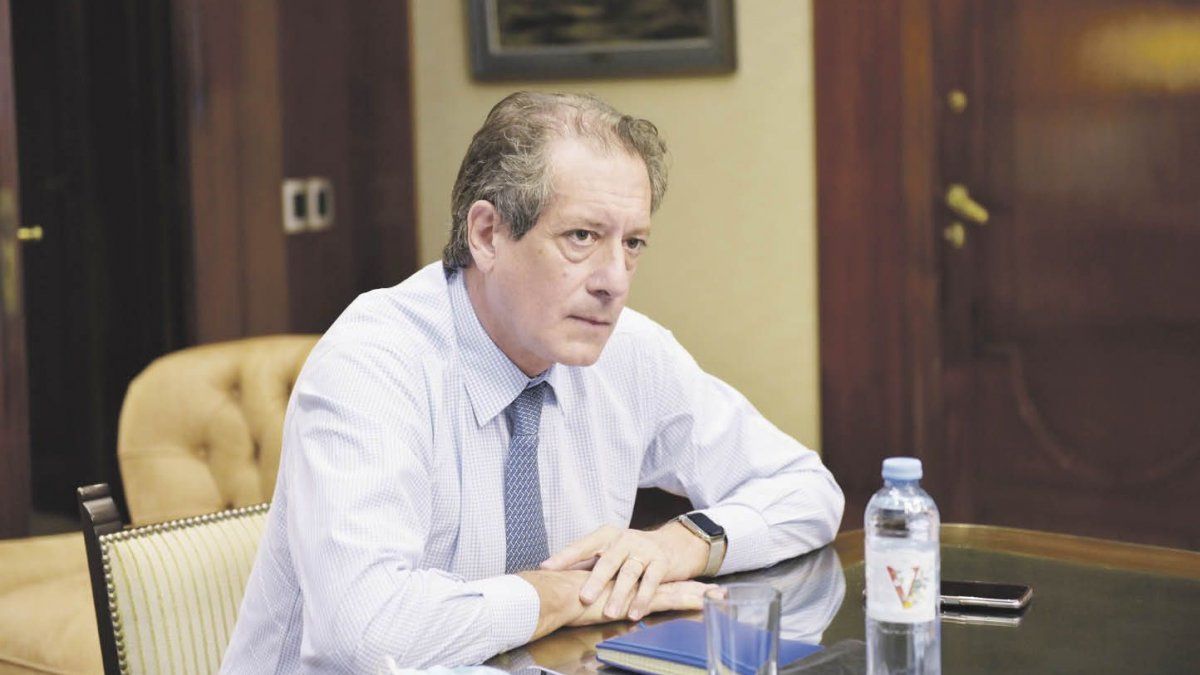“A necessary condition to reduce the levels of inflationary inertia is to maintain a process of accumulation of reserves that dissipates the risks of balance of payments crises and abrupt jumps in the exchange rate, thus anchoring exchange rate expectations”, states the BCRA in its latest Monetary Policy report.
The report explains, in this sense, that the entity accelerated this year the crawling peg this year “with the aim of strengthening the position of international reserves” so that the depreciation rate converges “gradually to levels more compatible with the domestic inflation rate”.
According to the monetary authority, the reasons for the increase in prices in the first months of 2022 is due to a “recomposition of the marketing margins of certain sectors and the reopening of wage parities”. It also states that the increase in the CPI, which accumulated 8.8% in the first two months, is due to the “higher inflation expectations as a result of higher exchange rate pressures associated with financial uncertainty generated by entering a stage of definition of the negotiation with the IMF for a new agreement on the debt with the organization”.
To that, maintains the BCRA, we must add “unfavorable domestic weather conditions and the significant increase in international prices of agricultural raw materials, energy and global manufacturing, which presented an acceleration in the face of the conflict between Russia and Ukraine since the end of February”.
The monetary entity then points out that the agreement with the IMF “will help reduce exchange rate uncertainty and anchor devaluation expectations, contributing to the gradual decline in inflation during the remainder of 2022.”
Rate hike
The BCRA states, on the other hand, that the changes it has been carrying out since January in interest rate policy also have the purpose of discouraging price increases. The explanation is somewhat more orthodox: “The increase in the monetary policy interest rate seeks tend towards positive real returns on investments in local currency, in order to boost the demand for pesos”.
What do economists think?
Frederick Moll, director of economics and finance Ecolatinaexplained to Ámbito that “the accumulation of reserves can be achieved in two ways, increasing the rate of depreciation, which would accelerate inflation, or further closing the trap to importers, which would also have negative consequences on inflation”. In that sense, he believed that “either of these two effects would overcompensate the potential positive contribution that comes from the management of expectations.”
Instead, he indicated that “The rise in the rate could help, but to the extent that it is part of a comprehensive plan that clearly explains how they plan to achieve the fiscal and monetary objectives imposed in the program with the IMF”. That said, the director of Ecolatina clarified that “the rate hike is a necessary condition, but by itself it can have little impact”
On your side, Diego Piccardoeconomist at Liberty and Progress Foundationconsidered that the measures proposed by the BCRA may have a limited effectiveness. “I am one of those who think that to curb inflation there is no monetary policy that substitutes a good fiscal policy”, he pointed to Scope. Picccardo specified that “the problem that the rate hike being carried out by the Central is that it is still below the rate of inflation”. Taking into account that the CPI for February reached 4.7%, if that figure is annualized, it gives a rate of 77%. “I don’t think the BCRA will take the annual rate to that level,” he explained. The professional added that until yesterday the fixed-term interest paid by Banco Nación is equivalent to 51% per year. “The one who put a fixed term in February lost against inflation,” he said.
On the other hand, Piccardo pointed out that although the idea of recovering international reserves is positive, it would not be enough. “Taking into account that they are so few, it does not seem that they are significant enough to change the confidence” of economic agents, he said.. The professional pointed out that “everything they plan to raise this year is what the IMF is going to give them.”
Meanwhile, Nicolas Pertierra, economist at the Center for Economic and Social Studies, Scalabrini Ortiz (CESO)points out that both the accumulation of reserves and the increase in interest rates “by itself does not solve” the problem of the tendency to increase inflation. “Those are conditions that improve the probability of success of a deindexation program of the inertia so strong that there is today but they do not amount to a freezing program that cuts the inertia”.
Source: Ambito
David William is a talented author who has made a name for himself in the world of writing. He is a professional author who writes on a wide range of topics, from general interest to opinion news. David is currently working as a writer at 24 hours worlds where he brings his unique perspective and in-depth research to his articles, making them both informative and engaging.




